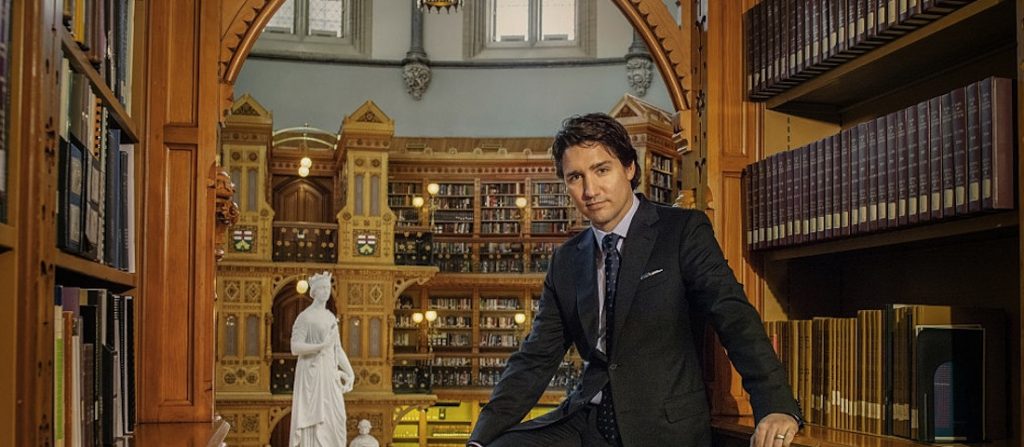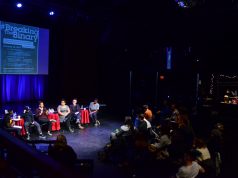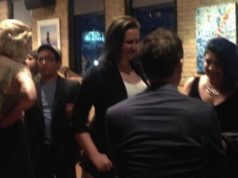Over the course of writing this article in the ten days leading up to the election, there has been a growing consensus amongst polls and pundits that it will result in a Liberal Party victory. If, as seems likely, Justin Trudeau is set to become the 23rd Prime Minister of Canada, there is a big piece of news to be considered by the arts community across Canada:
We immediately encounter the possibility of a transformed Canada Council for the Arts that has doubled in funding. The Council has already committed to the transformation part, breaking into six sections. Most people invested in this change await a major fall announcement with baited breath to find out what that means practically for artists and arts organizations.
During the campaign, Justin Trudeau announced with fanfare in September that he would DOUBLE the Canada Council as part his campaign platform. If they keep this promise we could be looking at a much larger, completely redefined national arts funding organization in the matter of a few years. On a macro-level, in terms of reinvigorating and redefining Canadian culture, it is a once in a generation opportunity.
This of course will guarantee nothing.
Campaign promises often do not become legislation and supporters of a doubled Canada Council across the country will have to put real pressure on all MPs to understand it is an important issue over which their constituents are engaged on. Thus far, advocacy around preserving the Canada Council for the Arts under a Harper Government has been spearheaded by the Canadian Arts Coalition. Following the election, they could continue to play a new, and one would assume a more gratifying, role coordinating not just the protection of the Canada Council, but its expansion under a new Government.
If, however, all of these efforts are successful, it could still be very easily scuttled in terms of having a tangible impact for both artists and Canadians who want the systems behind our cultural production to evolve.
Major organizations keep an A-List Board of Directors for exactly this type of moment in the zeitgeist. One needs only look at how Luminato was formed through a couple of businessmen having the right Liberal Party connections to understand how power and influence could trump informed analysis of arts funding at the political level. The minute this money becomes real, emails will be sent, coffee dates will be made, phone calls will be scheduled, and cocktails will be had. The goal will be to ensure this doubled funding re-enforces cultural power structures already in place.
This is especially true at this moment because the powers-that-be are nervous about the Canada Council changes. The feeling on the ground is that the transformation, which is going ahead regardless of new monies, would likely result in cuts for large institutions so room can be made to support new organizations and new practices. Any new funds made available will be targeted by these organizations to insulate them from having to adapt or collaborate in new ways. The old system – only bigger.
This sort of lobbying won’t come from the tens of thousands of individual artists working away in studios, rented rehearsals halls, attics, and make-shift recording studios who have likely created a production model that runs off of their laptops, many of whom are not earning a living wage. Yet, this moment is an opportunity for the rapidly expanding pool of independent artists that are under-represented in our cultural policy.
We excel at both innovation and efficiency out of necessity. We are where new movements and new ideas are generated as the laboratories and R&D facilities for Canadian culture. This system often operates on the backs of unpaid artist labour through how it supports and informs institutional work. Independent artists are the future of the arts in Canada, and we have been living in poverty and obscurity.
If we are about to engage in a major transformation of how our government invests and participates in arts and culture, let’s make sure we’re not entrenching more of the same old structures by ending the idea of “Majors” who get their funding no matter whet while less-connected art compete against each other. We need to create structures that invite new energy and artists to be culturally empowered. Our entire notion of what culture is -from something that broadcast by elites, to something interactive that we all can participate in, is changing.
Call or email your (all of a sudden likely Liberal MP) and let them know you support the campaign promise Prime Minister Trudeau ran on to double the Canada Council. Also let them know that you want this to be a transformative moment in how it operates. That art and artists are best served by directly receiving these funds. I also suggest liberal use of the hashtag #2xCC4ART.
Let’s create a mode of cultural production that is, in short, artist not institutionally driven. First things first though, the money has to turn from a campaign promise into a budget reality, and that will require everyone working together.










